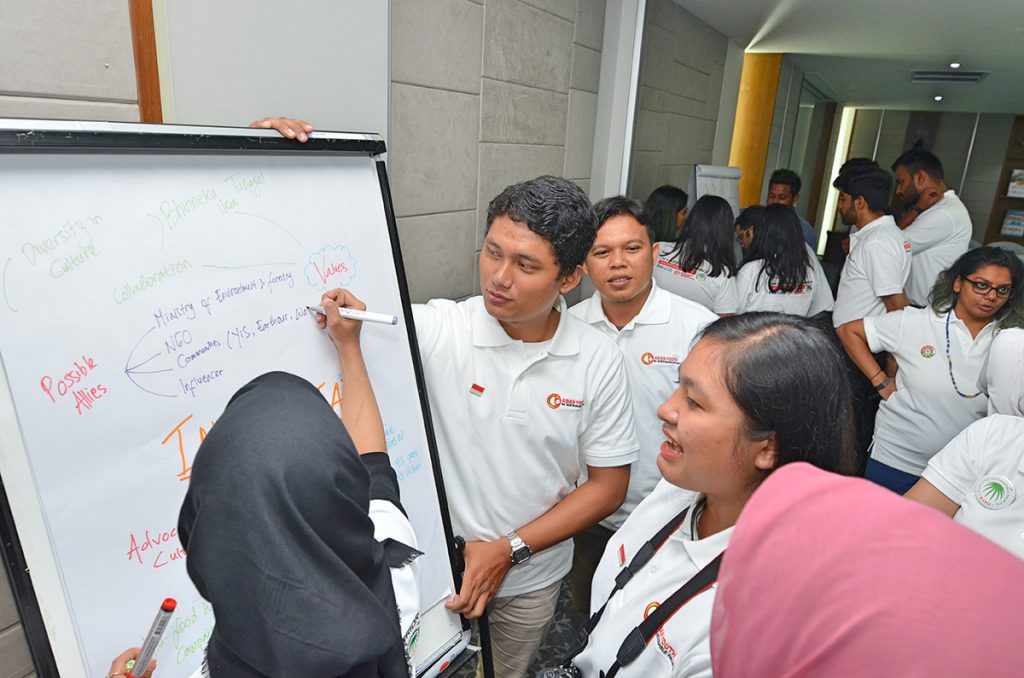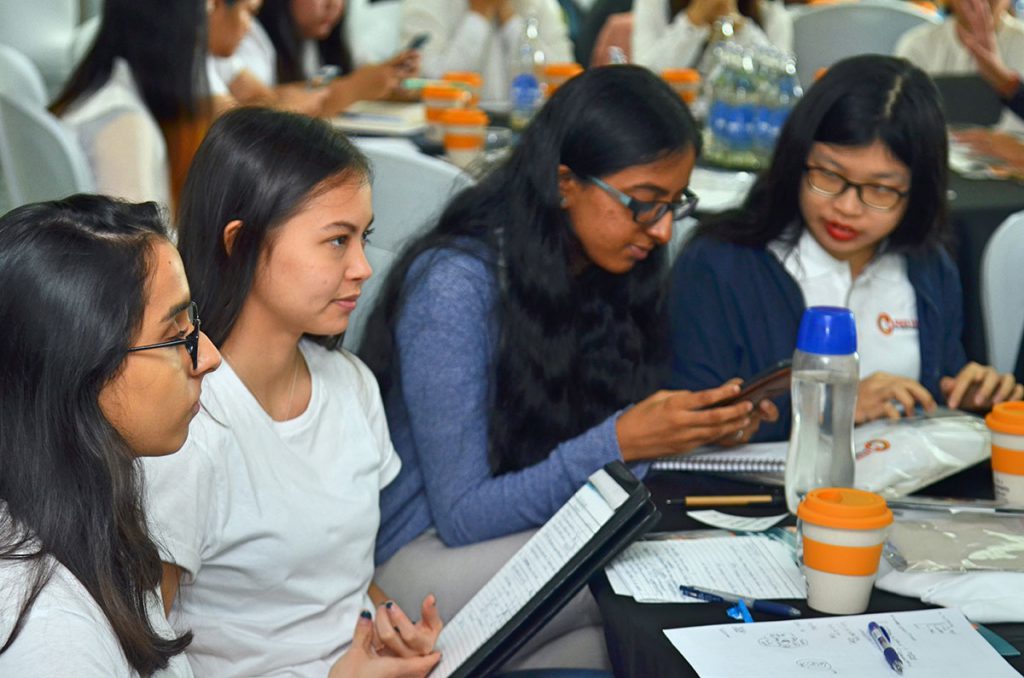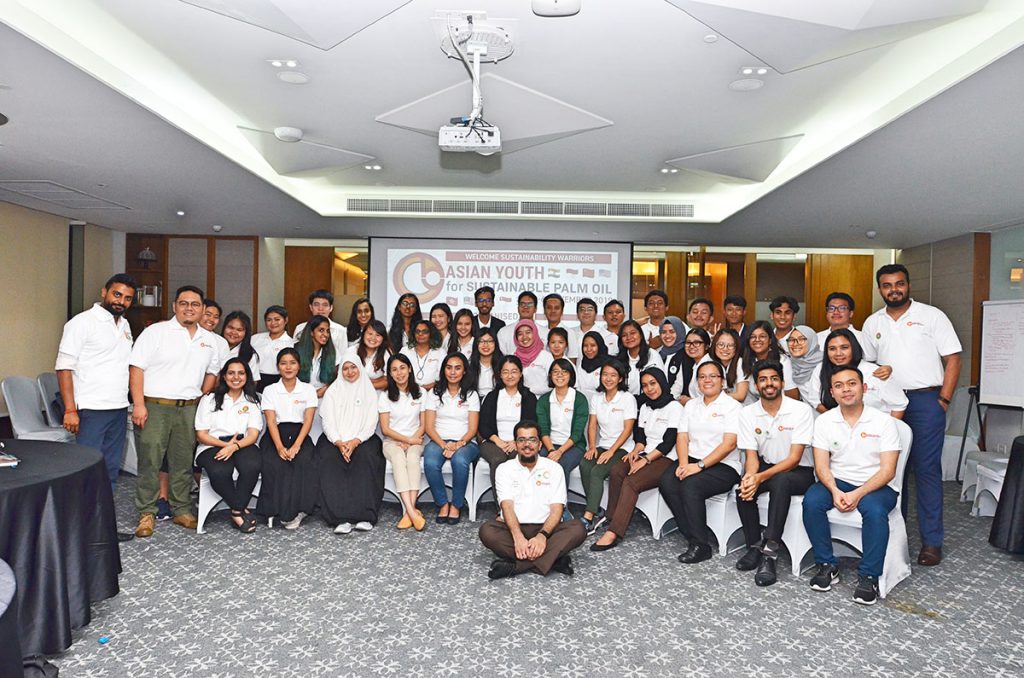
Writer: Naylinya Chappanapong, Senior Communication Officer, GIZ Thailand’s Agriculture and Food Cluster
About 50 young people from across the region have joined hands to co-create commitment towards ‘shared responsibility’ and called for all parties involved to sourcing 100% sustainable palm oil.
Speaking at the sideline workshop of the Asian Youth for Sustainable Palm Oil Summit in Bangkok, Sirirat Puttachoo, a student from Chulalongkorn University’s Faculty of Political Science said social media plays such a critical role in raising awareness and ensuring better understanding of the impact of unsustainably-grown palm oil to everyday life.
“We can engage with general public by sharing information about sustainable palm oil practices and their impacts on our daily lives through social media channels,” said Ms. Sirirat.
She also added that those who involved in palm oil supply chains should not underestimate roles of the youth and emerging technologies in bringing about positive changes.
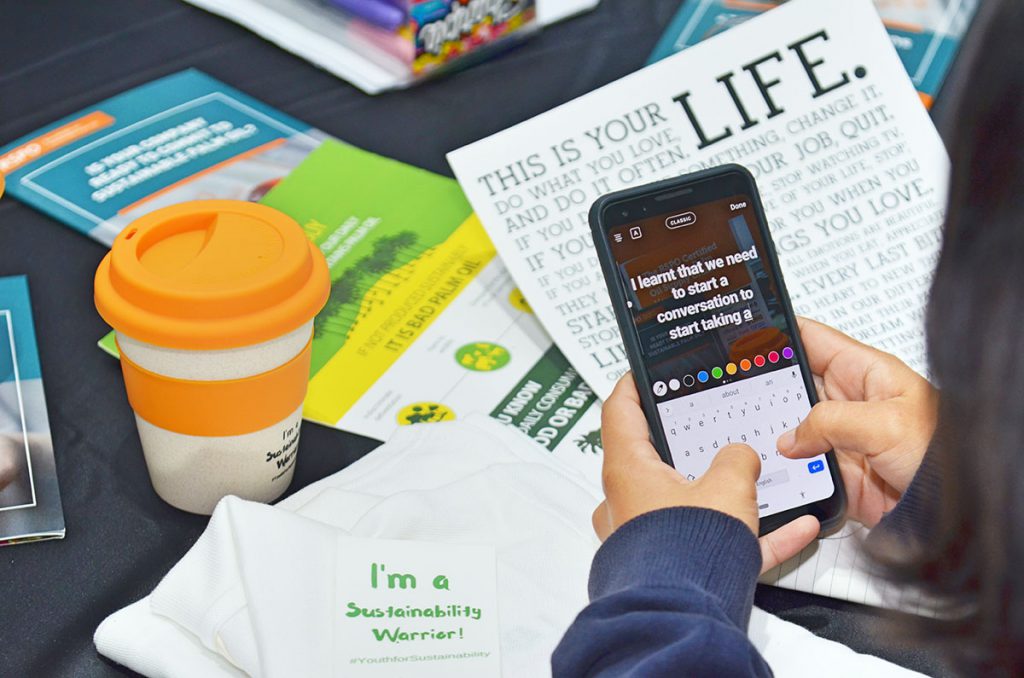
“I was so motivated by many pals from other countries who raised their voice to challenge the status quo in the business environment,” said Patcharin Sae-heng, another student from Mahidol University’s Faculty of Environment and Resource Studies.
Patcharin opined that responsible consumption is a key factor to drive palm oil supply chains towards sustainability. “The use of the RSPO logo on packaging of the certified products will encourage more consumers to care about it.”
The summit was co-organized on 3 November 2019 by the Roundtable on Sustainable Palm Oil (RSPO), People’s Movement to Stop Haze (PM Haze) and Deutsche Gesellschaft fuer Internationale Zusammenarbeit (GIZ) GmbH.
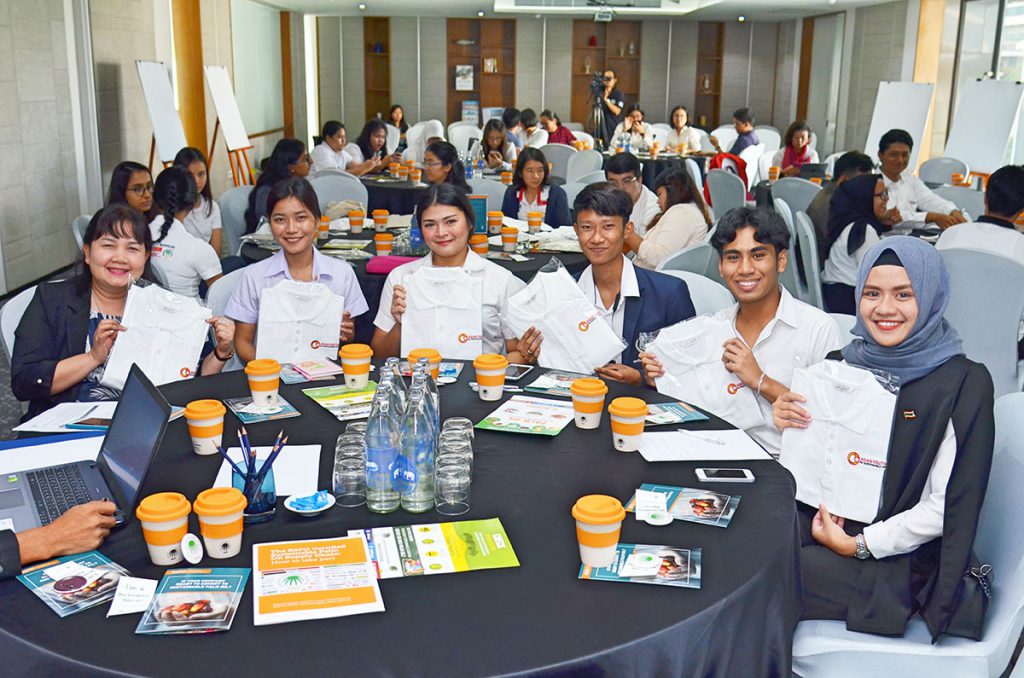
The summit urged stakeholders from private and government agencies to ‘act now’ on producing sustainable palm oil to reduce the impacts of climate change.
Currently, Indonesia and Malaysia are major palm oil producers, contributing 52.5 million tonnes of palm oil or 85 percent of global production. Thailand ranks third of the world’s production in 2017 with an annual production of 2.5 million tonnes.
There are 42 countries that also produce palm oil but only 19 percent of the total palm oil production are certified sustainable.
When grown unsustainably, conventional oil palm cultivation can have a seriously damaging impact on the environment, potentially destroying forests and the habitats of wildlife, while also negatively impacting local communities.
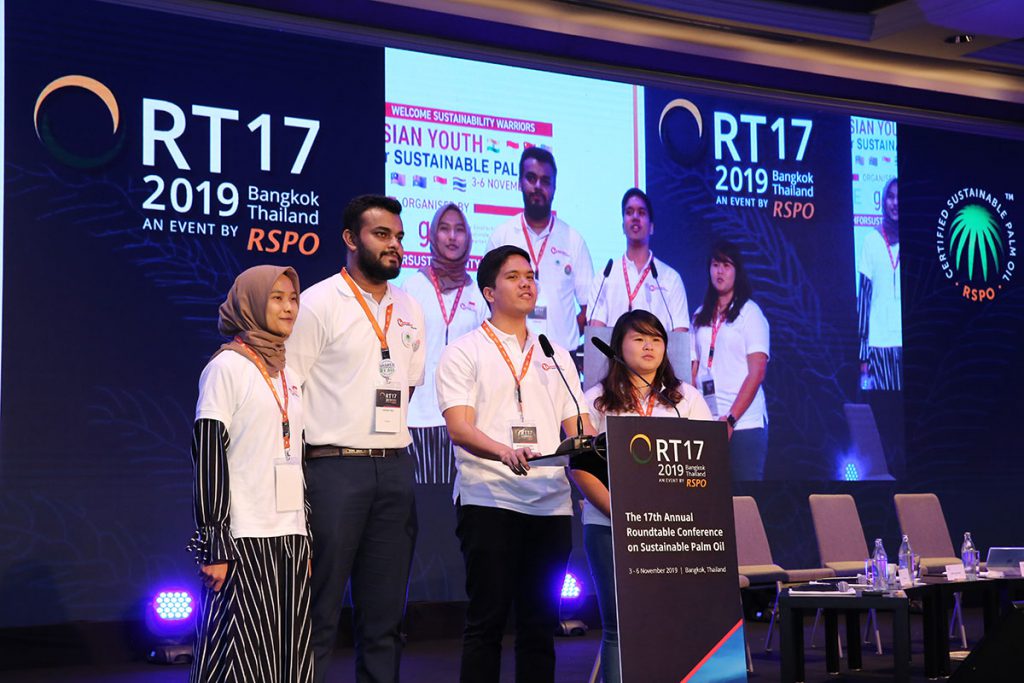
“Because of low public awareness, many companies have yet to commit and take any bold action to make sustainability as a new norm. GIZ is committing to work with Thai youngsters in raising more awareness through online platforms,” said Kanokwan Saswattecha, project manager of the Sustainable and Climate-friendly Palm Oil Production and Procurement (SCPOPP) in Thailand.
While Kamal Seth from RSPO India urged all stakeholders to address the sustainability issues ‘now’ because ‘there is no planet B’.
“There is a big opportunity for businesses to meet the sustainability expectations of the youth and build trust and brand loyalty through sustainable palm oil sourcing policies and actions. We encourage all RSPO members to respond to this call. Together we can inspire a generation of people with hope and optimism and co-create a more inclusive world for all.”
Although the three-day event wrapped up, the Asian Youth Delegation will continue their work on #YouthForSustainability in their respective countries.
